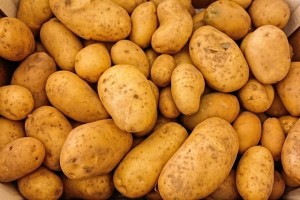to call off (a plan) to blow off/away ![]()
[verb]
[af-bla-zen, blies af, af-ge-bla-zen]
Yesterday I read in a Dutch newspaper that president Obama “afblies” a plan by George W. Bush. Regardless of the plan I concluded that “afblazen” would make a good DWOTD 🙂 Literally “to blow off”, a common translation of “afblazen” is “to call off a plan”. Usually the plan that is “afgeblazen” is already close to execution or in an advanced state.
The adjective/adverb “af” can mean “off, away, finished, out” and verbs that are composed of “af” + “some other verb” usually indicate ending or moving away from something. An example is when a referee “afblaast”: blowing the whistle in order to end the match.
Examples:
– “En zijn jullie klaar voor morgen? Ik heb echt een heel goede presentatie, al zeg ik het zelf.” – “Heb je het nog niet gehoord? De voorlichtingsdag is afgeblazen!”
(“Are you (guys) ready for tomorrow? My presentation is (going to be) excellent, if I say so myself.” – “Haven’t you heard yet? The information day has been cancelled!”)
– “De scheidsrechter negeerde de extra tijd en blies vroegtijdig af.”
(“The referee ignored the extra time and ended the match early.” A common alternative to ‘afblazen’ in this context is ‘affluiten’.)
– “Weet je wat, het lijkt mij het beste als we het afblazen, zeg nu zelf, we hebben echt te weinig voorbereidingstijd.”
(“You know what, I think it’s best if we call it off, let’s be honest, we definitely do not have enough preparation time.”)
– “Ruim een jaar geleden blies president Obama een omstreden plan van George W. Bush voor een raketschild juist af.” (in NRC Handelsblad, 18 November 2010)
(“While over a year ago president Obama called off a controversial plan by George W. Bush for a missile shield.” The use of the word ‘juist’ in the sentence indicates that the described (past) action is contrary to or in contrast with what is done at the moment; I tried to capture this with the word “while” at the beginning of the sentence.)
– ” ‘Het wordt weer vroeger donker en somberheid maakt zich van mij meester’, sprak Richard terwijl de wind de bladeren van het dak blies.”
(” ‘The days are becoming shorter again and gloominess is taking control of me’, Richard said while the wind blew the leaves off the roof.” Literally “It is getting darker earlier again…”)
Expressions:
– “Stoom afblazen”: to let off steam.
Example:
– “Laat hem maar even stoom afblazen, hij is boos dat het toernooi is afgeblazen.”
(“Just leave him, he needs to let off some steam, he is angry about the tournament having been cancelled.”)
Related words:
– Blazen: to blow [verb] [blies, geblazen].
– Beëindigen: to end, to terminate [verb] [beëindigde, beëindigd].
– Annuleren: to cancel [verb] [annuleerde, geannuleerd].
– Affluiten: blowing the whistle to end the match (by referee) [verb] [floot af, afgefloten].
– Aflasten/afgelasten: to cancel, to call off [verb] [(ge)lastte af, afgelast].

 “Nageslacht” is related to the word “nakomeling”. The latter translates as “descendant” (literally “the one coming after”). All “nakomelingen” of a parent together form the “nageslacht”.
“Nageslacht” is related to the word “nakomeling”. The latter translates as “descendant” (literally “the one coming after”). All “nakomelingen” of a parent together form the “nageslacht”. “Aardappel” literally translates to “earth apple”. It’s actually a potato 🙂
“Aardappel” literally translates to “earth apple”. It’s actually a potato 🙂